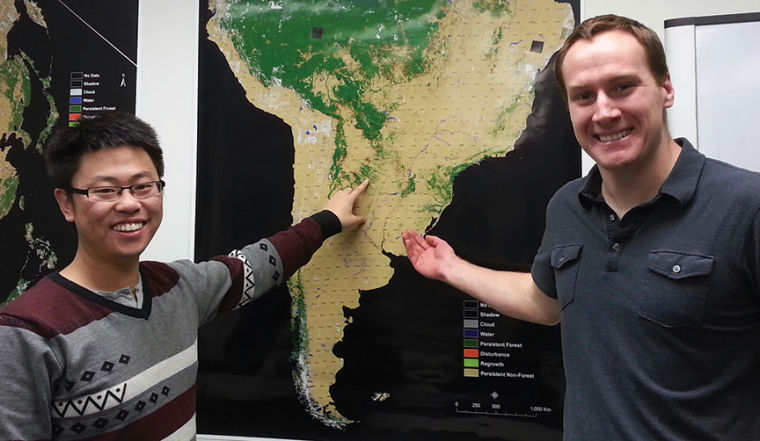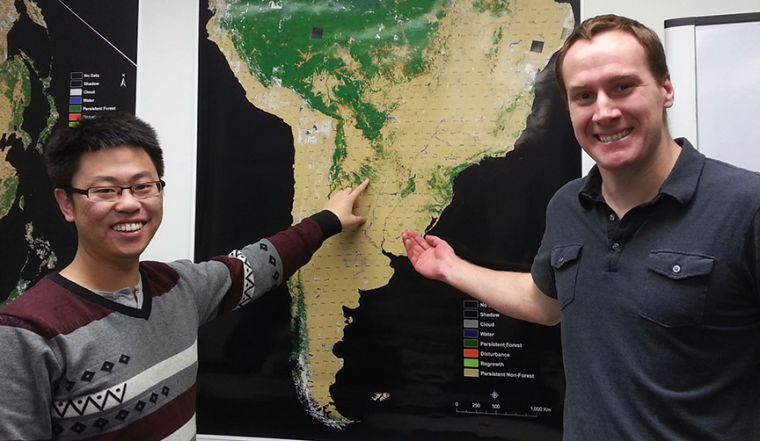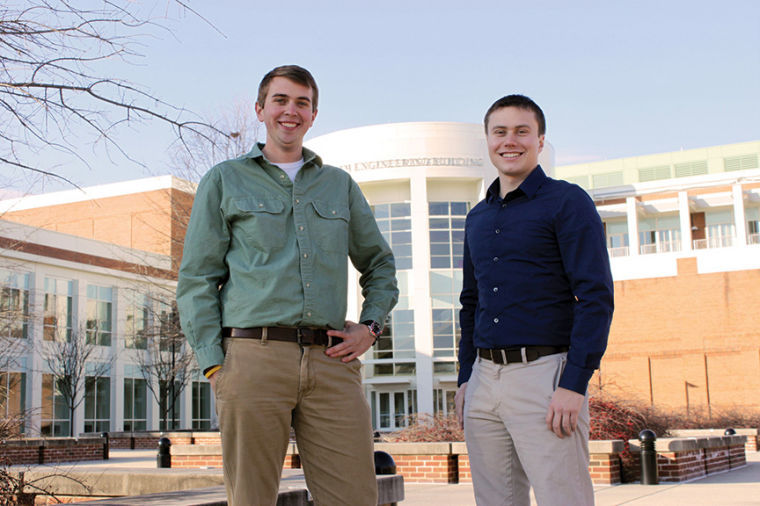Two pairs of graduate students became the first recipients of Green Fund Fellowships this semester after the university’s Council on the Environment saw promise in their sustainability research.
The fellowship is meant to encourage a meeting of minds, with graduate students coming together from separate fields to tackle a single environmental problem. The council, created in November 2011, intended to offer $10,000 to only one pair, but in January, the overwhelming number of quality proposals inspired the advisory group to award another $10,000 from its own funds to give two more students an opportunity to further their research.
The council has already announced another pair will receive a Green Fund Fellowship in the fall.
“In grad school, it’s very difficult to engage in cross-disciplinary collaborations,” said Joe Maher, one of the fellowship recipients and an agricultural and resource economics graduate student. “This gave us incentive to combine our specializations to do an interesting research project neither of us could do on our own.”
Maher is working with Xiaopeng Song, a geography graduate student, on a project to evaluate how deforestation is impacted by protected areas, plots of rainforest that companies buy to offset their carbon emissions.
Song’s expertise is in remote sensing, which he has used to create spatially precise, high-resolution satellite images that show deforestation rates more accurately over time. Maher can then analyze this data from an economic policy standpoint and determine whether the protected areas had any substantial impact on deforestation rates.
“Having an accurate assessment of the effectiveness and the cost-effectiveness of protected areas is what we’re getting at because it informs what kind of role carbon offsets should have in comprehensive climate policy,” Maher said.
He and Song plan to use most of their grant money to travel to conferences and cover the costs of publishing once they have their results, Maher said. Hopefully, he added, their research findings will shed some light on current environmental policy, especially a United Nations agreement called REDD+, in which partner countries buy carbon offsets in tropical rainforests to mitigate the effects of their own greenhouse gas emissions.
The council awarded a second grant to David Daily and Scott Tjaden for their research on the effects of integrating green roofs and solar panels to improve energy efficiency.
The two met as undergraduates when they worked on the university’s winning entry to the 2011 U.S. Department of Energy’s Solar Decathlon, a solar-powered home inspired by the Chesapeake Bay. Daily, an electrical engineering major, and Tjaden, an environmental science and technology major, had several ideas for research but weren’t sure if they would be able to work together on a joint project.
However, when they heard about the council’s fellowships for interdisciplinary work, they thought they would make the perfect team, Tjaden said.
Their research is aimed at comparing the energy efficiency of solar panels to a solar-powered roof that is also covered in vegetation. They hypothesize that using a solar panel combined with a green roof will be more efficient because of the plants’ cooling effects. Not only do solar panels produce more energy in cooler air, but a green roof can help keep the building cool as well, which can cut down its energy use in the summer, Daily said.
“If you combine the two technologies, it’s creating that larger system that can have beneficial effects,” he said.
Green roofs are relatively inexpensive, requirem minimal maintenance and can provide other benefits such as managing storm water runoff, Tjaden said.
The university has already started to use green roofs on many of its buildings, including the physics building, Cumberland Hall and parts of Stamp Student Union, Tjaden said. The duo hopes their research will encourage wider use of green roofs, especially when paired with solar panels.
“In the end, we’re trying to make things more efficient, more cost effective and overall better for the environment,” he said.
Both groups will present their findings to the council when they finish their projects at the end of the year. However, Daily said he’s looking forward to pursuing more research with experts outside his field.
“Departments usually stick within their own areas,” Daily said. “They don’t like to branch out, but when they do, it’s a good thing.”
Two pairs of graduate students received the university’s first Green Fund Fellowships in January. Xiaopeng Song and Joe Maher study the impact of Protected Areas in rain forests on deforestation.
Graduate students Scott Tjaden and David Daily research the efficiency of solar panels versus combining the technology with green roofs.





